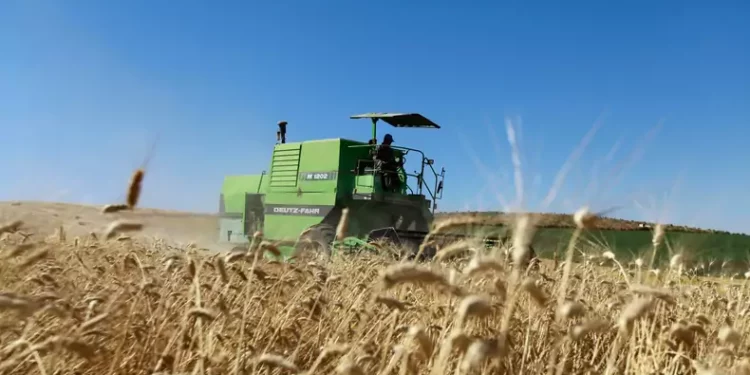Peasant Farmers Association commends Gov’t for exemptions on importation of agricultural machinery, inputs
“We also encourage importers and distributors to reduce their prices accordingly to reflect these waivers and urge the Ministry of Finance and the GRA to create a tracking mechanism to ensure that importers who enjoy these waivers also reduce their prices for the benefit of farmers and consumers at large,”
- Advertisement -
The Peasant Farmers Association of Ghana (PFAG) has expressed appreciation for the government’s strategic decision to grant exemptions on the importation of agricultural machinery, equipment, and inputs, as outlined in the 2024 budget statement.
The national budget for 2024 signifies a pivotal shift, with import duties on these essential agricultural components waived, particularly for items not readily available locally.
- Advertisement -
Bismark Nortey, Head of Programmes at PFAG, conveyed the Association’s endorsement during the CSOs Post Budget Review & Media Engagement organised by the CSOs Budget Forum on the 2024 budget statement on Tuesday, December 5, 2023.
- Advertisement -
Mr Nortey emphasized that the exemptions mark a significant milestone, anticipating positive ramifications for the agricultural sector. By alleviating import duties on machinery, equipment, and inputs not locally sourced, the government aims to foster a more conducive environment for farmers, simultaneously enhancing the sector’s overall appeal.
Mr Nortey highlighted the multifaceted benefits of these exemptions. First, he underscored the potential reduction in the cost of these vital agricultural assets, providing much-needed relief to farmers. Additionally, the lowered cost of production is anticipated to translate into broader economic advantages for the sector.
“The PFAG is pleased that the government has approved our request to grant exemptions on the importation of agricultural machinery, equipment and inputs. This is a bold move and we commend the government for that. We are hopeful that the processes leading to the execution of this exemption will be accelerated to ensure that farmers enjoy low production costs,” he posited.
“We also encourage importers and distributors to reduce their prices accordingly to reflect these waivers and urge the Ministry of Finance and the GRA to create a tracking mechanism to ensure that importers who enjoy these waivers also reduce their prices for the benefit of farmers and consumers at large,” he added.
This initiative aligns with the government’s commitment to fortifying the agricultural industry, positioning it as a lucrative and appealing venture for stakeholders.
According to PFAG, the agriculture sector in the first quarter grew by 6.3 percent compared to a growth rate of 4.3 percent in the same period 2022.
- Advertisement -
The overall agricultural GDP growth increased from 2.9 percent in 2022 in the first half of the year to 3.2 percent within the same period in 2023.
This growth is said to be driven by the crops and livestock sub-sectors which recorded a growth rate of 6.8 percent in 2023 compared with 3.8 percent and 5.7 percent respectively within the first half of 2022.
Ghana’s agriculture sector is an important sector providing employment to about 38.3 percent of the population with the majority of rural folks engaged in either mainstream production or value chain activities, especially women.

The sector is key in sustaining domestic industries, stability of the local currency, ensuring food security and suppressing food inflation. The poor performance of the agriculture sector is mostly reflected in the poor performance of most of the productive sectors of the economy.
For instance, the poor performance of the sector in 2021 and 2022 led to the worsening of almost all the macroeconomic indicators such as inflation (54% in December 2022 being the highest in the last 22 years) and exchange rate depreciation (the cedi depreciated by 20% in 2023).
The CSOs Post Budget Review & Media Engagement held by the CSOs Budget Forum focused on the thematic areas of macro-fiscals (Revenue and Expenditure measures); extractives and energy; social spending (Health and Education), agriculture (Food Security) and governance & anti-corruption.
The post-budget review was aimed at assessing the 2024 budget against CSOs inputs, identify pro-poor and pro-growth propositions put forward by government as well as gaps that need to be addressed in the best interest of Ghana.
Source:norvanreports
- Advertisement -


